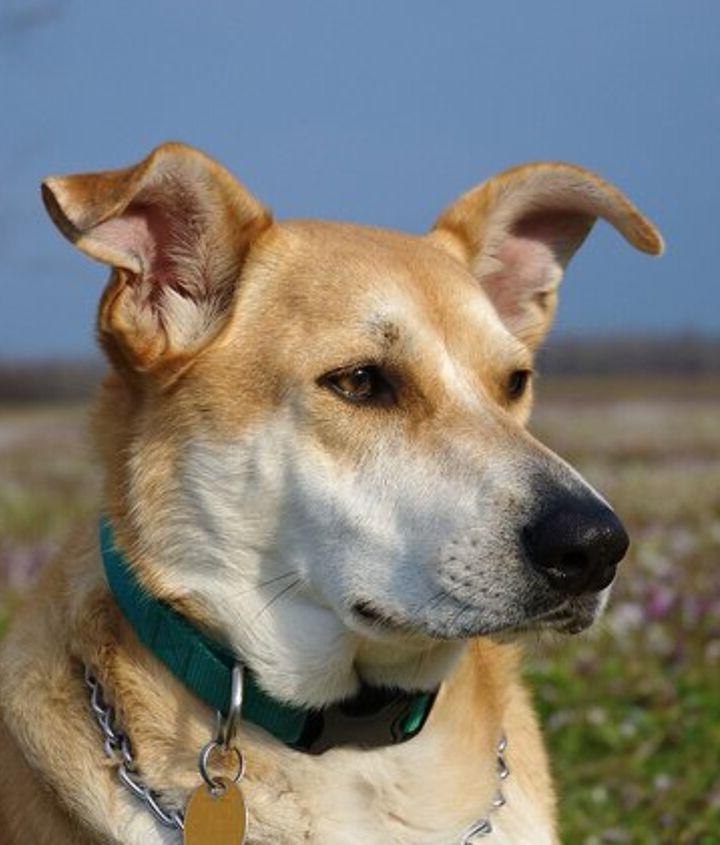Did you know that the Carolina Dog, often referred to as the American Dingo, is one of the few breeds that can trace its lineage back to ancient times? This fascinating breed, with its striking resemblance to wild dogs, has a rich history that dates back thousands of years. The purpose of this article is to delve into the unique characteristics, intriguing history, and essential care tips for the Carolina Dog. Originating in the southeastern United States, these dogs were discovered in the 1970s living in the wild. Their survival skills and adaptability are remarkable, making them a breed worth learning about. Join us as we explore what makes the Carolina Dog truly special.
Early Development and Historical Significance of the Carolina Dog

Early Development of the Breed
The Carolina Dog’s roots run deep, tracing back to the ancient canines that roamed the lands of North America. These dogs evolved naturally, adapting to the environment of the southeastern United States. Their development was shaped by survival instincts, leading to a breed that is both resilient and resourceful.
Role in American History and Native Populations
Historically, the Carolina Dog played a significant role in the lives of Native American tribes. They were not just companions but also essential partners in hunting and daily life. Their presence in ancient artefacts and folklore highlights their importance in early American history.
Key Historical Figures and Studies
In the 1970s, Dr. I. Lehr Brisbin, a researcher at the University of Georgia, was instrumental in bringing attention to the Carolina Dog. His studies on their behaviour and genetics were pivotal in recognising the breed’s unique status. This research helped establish the Carolina Dog as a distinct breed, worthy of preservation and study.
Physical Characteristics
Carolina Dogs are medium-sized with a lean, muscular build. Their coat is typically short and dense, often in shades of ginger or buff. They have a distinctive, fox-like face with erect ears and a tail that curves like a fishhook. These features not only contribute to their wild appearance but also to their agility and endurance.
Appearance and Unique Traits of the Carolina Dog
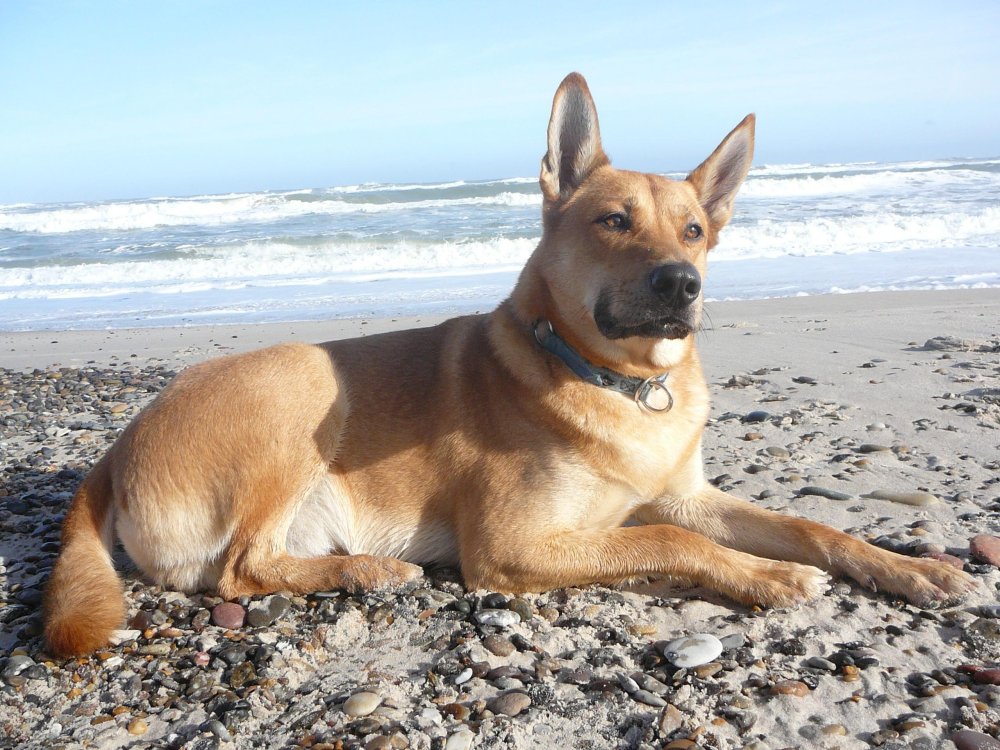
Distinctive Appearance
Carolina Dogs are medium-sized, with a sleek and athletic build that speaks to their wild ancestry. Their coat is short and dense, usually in shades of ginger, buff, or sometimes a reddish hue. This natural colouring helps them blend seamlessly into their environment. One of their most striking features is their fox-like face, complete with erect ears and a tail that curves like a fishhook, adding to their primitive charm.
Unique Physical Traits
These dogs are known for their agility and endurance, traits that have been honed over centuries of survival in the wild. Their lean bodies and strong legs make them excellent runners, capable of covering long distances with ease. This agility is not just physical but also mental, as they are quick learners and highly adaptable to different situations.
Temperament and Behaviour
Carolina Dogs are known for their intelligence and independence. They are naturally cautious, often taking time to warm up to new people and situations. However, once they form a bond, they are incredibly loyal and protective. Their behaviour is often compared to that of wild canines, displaying a pack mentality and strong social instincts. They thrive in environments where they can be active and engaged, making them great companions for those who appreciate a dog with a bit of a wild side.
Personality and Suitability of the Carolina Dog
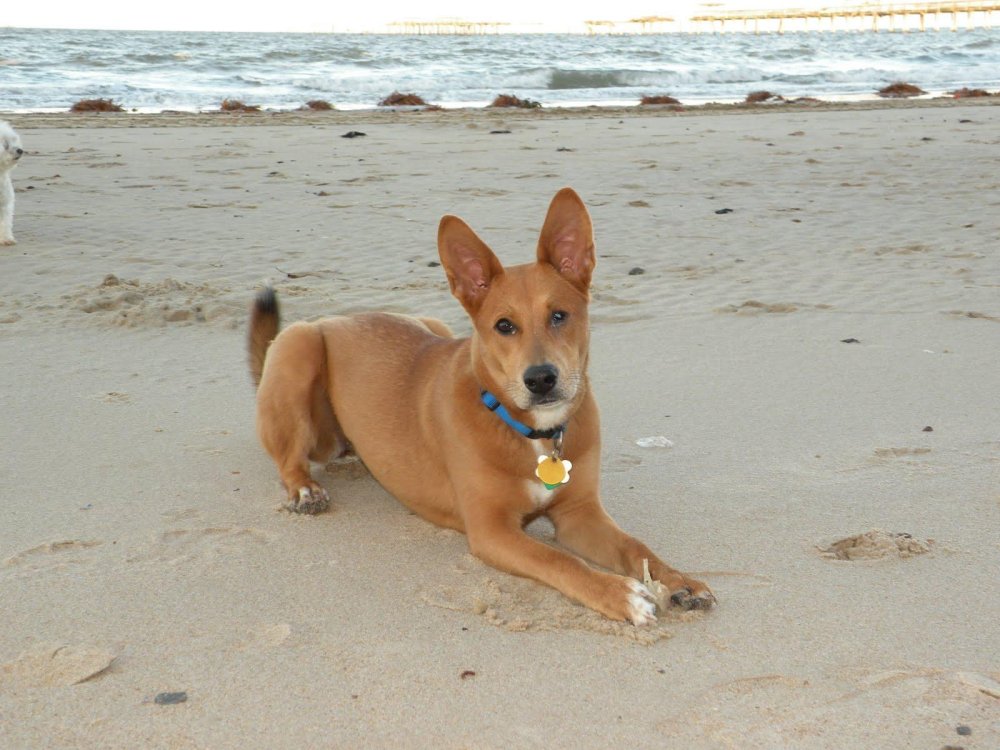
Typical Personality Traits
Carolina Dogs are a fascinating blend of loyalty, intelligence, and independence. They have a natural curiosity and are quick learners, making them both engaging and sometimes challenging companions. Their independent streak means they can be quite self-sufficient, but they also form strong bonds with their families, showing a deep sense of loyalty.
Suitability as a Family Pet and Working Dog
These dogs are versatile, fitting well into both family and working environments. Their history as hunting partners makes them excellent working dogs, while their loyalty and protective nature make them suitable family pets. They thrive in active households where they can participate in various activities.
Interaction with Children and Other Animals
Carolina Dogs are generally good with children, especially if raised with them. They tend to be gentle and patient, though supervision is always recommended. With other animals, they may exhibit a pack mentality, so early socialisation is key to ensuring harmonious interactions.
Training and Exercise Needs
Training a Carolina Dog requires patience and consistency. Their intelligence means they pick up commands quickly, but their independent nature can sometimes lead to stubbornness. Regular exercise is essential, as they have high energy levels and need plenty of physical and mental stimulation to stay happy and healthy.
Training, Exercise, and Health of the Carolina Dog

Importance of Early Training and Socialisation
Getting a Carolina Dog off to a good start with early training and socialisation is crucial. These dogs are naturally cautious, so exposing them to different people, environments, and other animals early on helps them become well-adjusted adults. It’s all about building their confidence and ensuring they’re comfortable in various situations.
Recommended Training Techniques
When it comes to training, positive reinforcement is the way to go. Carolina Dogs respond well to rewards and praise, making them eager to learn. Consistency is key, as their independent streak can sometimes lead to stubbornness. Short, engaging training sessions work best to keep their attention.
Daily Exercise Requirements and Activities They Enjoy
These dogs are bundles of energy, so daily exercise is a must. They love activities that challenge both their bodies and minds. Think long walks, runs, or even agility courses. Interactive games like fetch or hide-and-seek can also keep them entertained and fit.
Health and Lifespan
Carolina Dogs are generally healthy, with a lifespan of around 12 to 15 years. Regular vet check-ups and a balanced diet are essential to keep them in top shape. Like any breed, they can be prone to certain health issues, so staying informed and proactive about their health is important.
Health and Care of the Carolina Dog
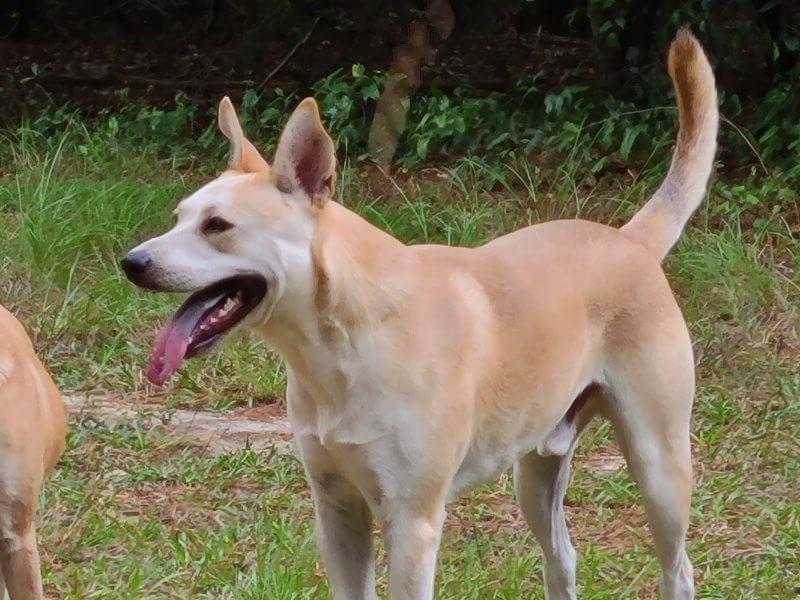
Common Health Issues
Carolina Dogs are generally robust, but like any breed, they can face certain health challenges. Hip dysplasia and elbow dysplasia are conditions to watch for, as they can affect mobility. Regular vet visits are crucial to catch any issues early.
Average Lifespan and Health Tips
With proper care, these dogs can live between 12 to 15 years. A balanced diet, regular exercise, and mental stimulation are key to a long, healthy life. Keeping them active not only maintains their physical health but also supports their mental well-being.
Preventative Care Recommendations
Routine vaccinations, flea and tick prevention, and dental care are essential. Regular grooming helps keep their coat healthy and allows you to check for any skin issues or parasites. Early detection of health problems can make a significant difference.
Grooming and Maintenance
Carolina Dogs have a short, dense coat that requires minimal grooming. A weekly brush will help remove loose hair and keep their coat looking its best. Bathing should be occasional, as over-washing can strip natural oils from their skin.
Coat Care and Grooming Routines for the Carolina Dog

Shedding and Seasonal Grooming Tips
Carolina Dogs have a short, dense coat that’s pretty low-maintenance. They do shed, especially during seasonal changes, so a weekly brush is a good idea to keep loose hair under control. During shedding seasons, you might want to brush them more often to help manage the extra fur. This not only keeps your home cleaner but also helps your dog feel more comfortable.
Diet and Nutrition
A balanced diet is crucial for the health and vitality of a Carolina Dog. These active dogs need high-quality food that provides the right mix of proteins, fats, and carbohydrates. Look for dog food that lists meat as the first ingredient and avoid fillers like corn and soy. Fresh water should always be available, and treats should be given in moderation to maintain a healthy weight. Regular vet check-ups can help tailor their diet to specific needs, ensuring they get all the nutrients they require.
Nutritional Needs and Feeding Tips for the Carolina Dog
Foods to Include and Avoid
For optimal health, Carolina Dogs thrive on a diet rich in high-quality proteins and healthy fats. Look for dog food where meat is the first ingredient, and steer clear of fillers like corn, soy, and artificial additives. Fresh fruits and vegetables can be great additions, offering essential vitamins and minerals. Avoid foods that are high in sugar or overly processed, as these can lead to health issues.
Feeding Schedules and Portion Recommendations
Establishing a consistent feeding schedule is important. Typically, adult Carolina Dogs do well with two meals a day, while puppies may need three to four smaller meals. Portion sizes depend on their age, weight, and activity level, so it’s wise to consult with a vet to tailor their diet. Always ensure fresh water is available.
Fun Facts and Trivia
Did you know that the Carolina Dog is sometimes called the “American Dingo”? This nickname comes from their wild appearance and ancient lineage. Despite their primitive looks, they are known for their gentle and loyal nature. Another fun fact: these dogs have a unique “fishhook” tail, which is a distinctive trait among their kind.
Interesting Tidbits and Famous Carolina Dogs
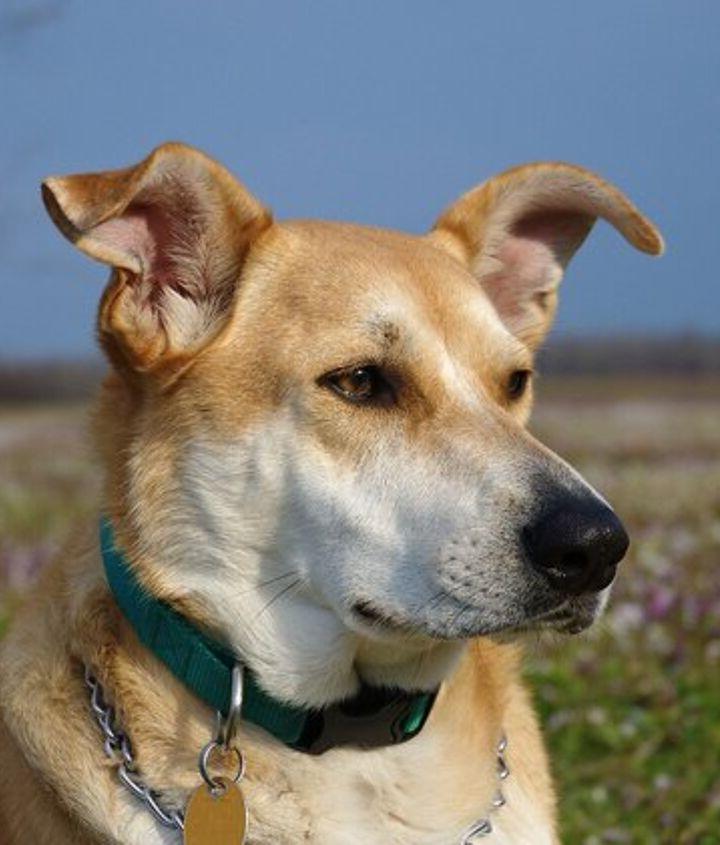
Interesting Tidbits about the Breed
Carolina Dogs are often mistaken for wild animals due to their dingo-like appearance. This resemblance is not just skin deep; they share behavioural traits with wild canines, such as digging dens and howling. These dogs are also known for their unique “fishhook” tail, which is a rare feature among domestic breeds.
Another fascinating aspect is their pack mentality. Carolina Dogs often form strong social bonds, not just with humans but also with other dogs. This trait makes them excellent companions for those who appreciate a dog with a bit of a wild side.
Famous Carolina Dogs in Media or History
While not as widely recognised as some other breeds, Carolina Dogs have made their mark in history and media. In the 1970s, Dr. I. Lehr Brisbin’s research brought them into the spotlight, highlighting their unique status. Although they haven’t starred in blockbuster films, their story of survival and adaptation has been featured in documentaries and articles, showcasing their intriguing journey from wild to domestic life.
Final Thoughts
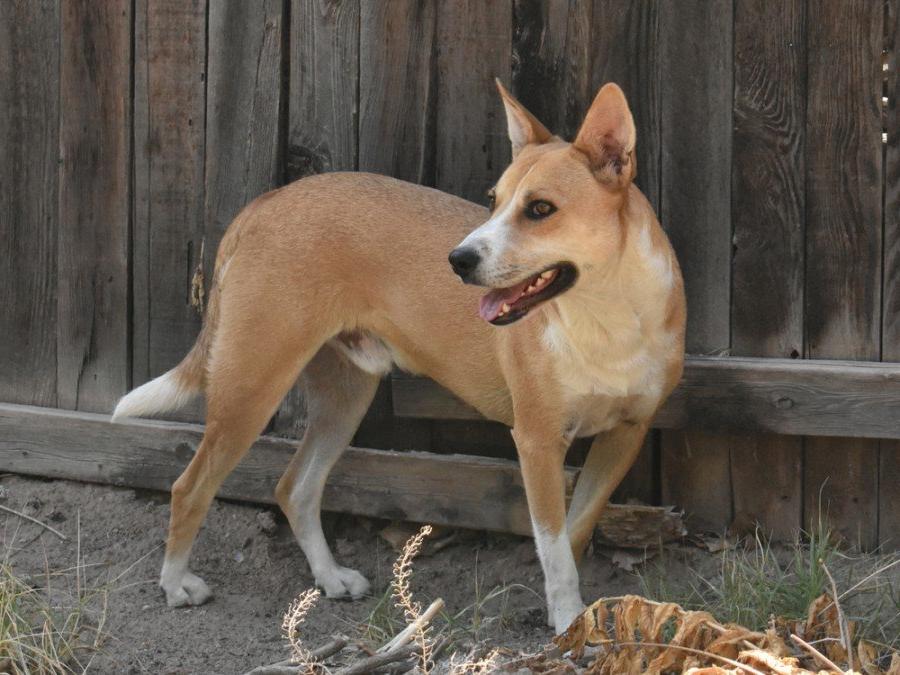
The Carolina Dog is a remarkable blend of history and adaptability. This breed’s ancient lineage and unique traits make it a fascinating subject for dog enthusiasts. From their survival instincts to their loyal companionship, Carolina Dogs offer a glimpse into the past while thriving in modern settings. Embracing a Carolina Dog means welcoming a piece of living history into your home. Consider adopting one of these extraordinary dogs and experience the joy of a truly unique companion.
